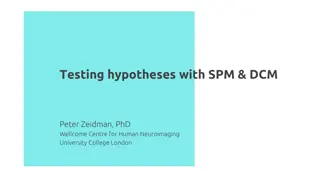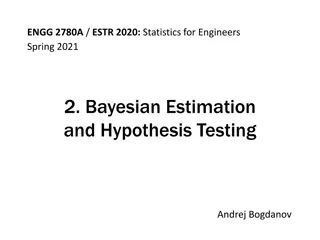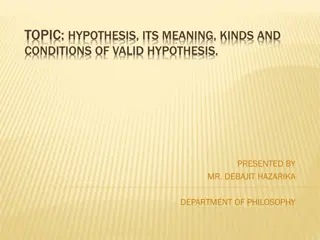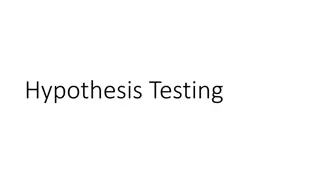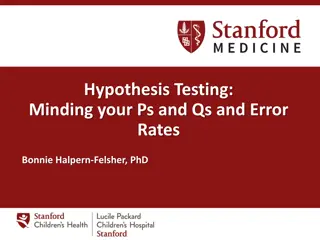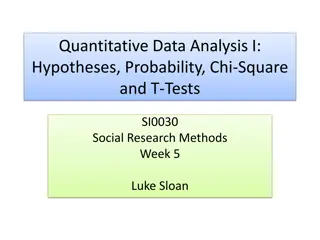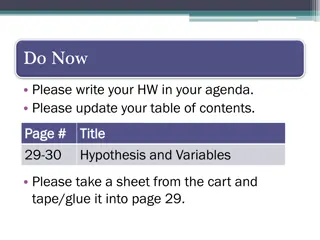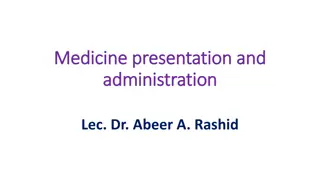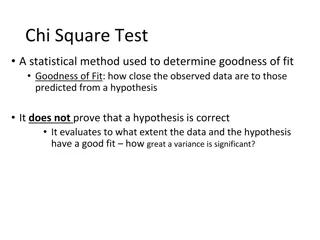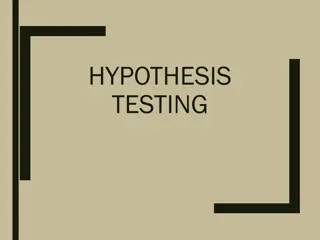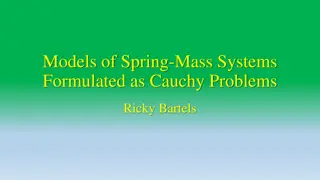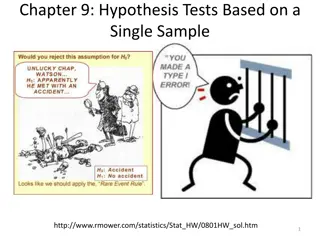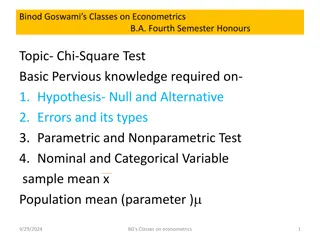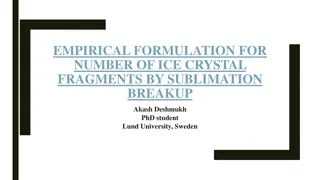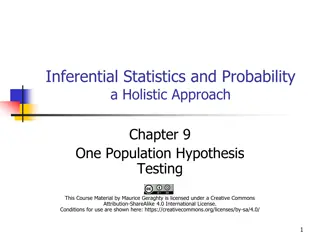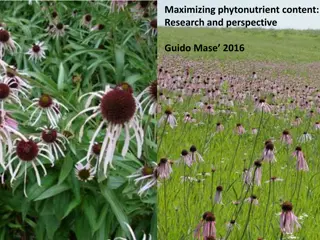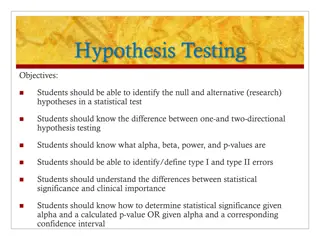
Understanding Hypothesis in Research: Definition, Types, and Importance
Explore the definition and significance of hypothesis in research, including the types of hypotheses, variables, and examples. Discover the role of hypotheses in guiding research efforts and reaching accurate conclusions efficiently.
Download Presentation

Please find below an Image/Link to download the presentation.
The content on the website is provided AS IS for your information and personal use only. It may not be sold, licensed, or shared on other websites without obtaining consent from the author. If you encounter any issues during the download, it is possible that the publisher has removed the file from their server.
You are allowed to download the files provided on this website for personal or commercial use, subject to the condition that they are used lawfully. All files are the property of their respective owners.
The content on the website is provided AS IS for your information and personal use only. It may not be sold, licensed, or shared on other websites without obtaining consent from the author.
E N D
Presentation Transcript
Lecture Outlines Definition and meaning of hypothesis Variable independent and dependent variables Types of hypothesis Importance of hypothesis Characteristics of good hypothesis Testing of hypothesis
Hypothesis A hypothesis is a specific statement of prediction It serves as an effective guide for future inquiry Hypothesis is a proposition, which is put to a test to determine its validity (Goode and Hatt) A hypothesis is a casual relationship between two or more variables (Kerlinger)
Usually there are two variables in a hypothesis Independent variable and Dependent variable A variable is defined as anything that has a quantity or quality that varies. The dependent variable is the variable a researcher is interested in. An independent variable is a variable believed to affect the dependent variable. In sociology, the hypothesis will often predict how one form of human behavior influences another. In research, independent variables are the cause of the change. The dependent variable is the effect, or thing that is changed.
Hypothesis Examples In the absence of good leadership (independent variable), there can be no good use of resources (dependent) for development Counseling (Independent) increases creativity (dependent) among students Smoking (Independent) causes cancer (dependent) Economic development (independent) leads to improve female education (dependent)
Types of Hypothesis Research Hypothesis Null Hypothesis Research Hypothesis: The authoritarian behaviour of parents is productive for the better morality of their children Null Hypothesis: The authoritarian behaviour of parents is not productive for the better morality of their children
Importance of Hypothesis Hypothesis helps investigators to establish the direction of the research It set up definite point of enquiry Save of time, money and energy It prevent researcher from blind search of literature and indiscriminate gathering of data Hypothesis acts as a guide to the whole research activity It helps in creating link between theory and investigation It helps in arriving at proper conclusion of the study The researcher should not struggle for the correctness of his/her hypothesis
Characteristics of a Good Hypothesis Must have a cause and effects relationship between variables It should be clearly stated It should be relevant to the problem under investigation A hypothesis must be simple and specific It should be capable of being tested with the help of data
Testing of Hypothesis Statisticians follow a formal process to determine whether to reject a null hypothesis, based on sample data. This process is called hypothesis testing. State the Hypothesis: this involves stating the null and alternative hypothesis. The hypothesis are stated in such a way that they are mutually exclusive. That is, if one if true, the other must be false.

